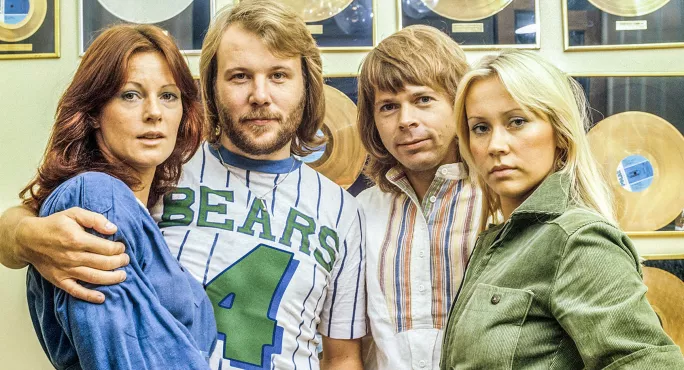- Home
- Teaching & Learning
- Secondary
- 4 ways to explore Eurovision in geography
4 ways to explore Eurovision in geography

On 11 May, 26 acts will compete in this year’s Eurovision Song Contest in Malmö, Sweden. While enjoying the music, glitter and glam, viewers will be asking the perennial question: “How is that country in the European song contest?”
Eligibility for Eurovision is based on whether a country is part of the European Broadcasting Union (EBU). The EBU’s membership spans well beyond countries that might be conventionally understood to be European.
So while the crowd says hello to Australia and Azerbaijan, many geography teachers may be giving nul points to the competition’s cartographer.
So how can you explore this geopolitical complexity with your students? Here are some ideas:
Geography lessons inspired by Eurovision
1. How many countries in Eurovision are European?
This could easily be used as a lesson starter for a scheme of work on Europe, and the answer depends on your criteria. The Esri Eurovision Storymap poses this question in relation to whether a country:
- Is a member of a shared entity such the European Union or UEFA (27 or 55 countries, respectively).
- Uses the euro as currency (20 countries).
- Can be travelled to with an Interrail train ticket (33 countries).
Alternatively, if we ask whether a country is located on the Eurasian continental plate, we then have to include a multitude of countries spanning from Iceland to Indonesia.
2. Visualising a nation
The presentation of the competing nations through the Eurovision postcards reveals how places are shaped and reshaped in the popular imagination. In 2023 there were images from Ukraine paired with images of UK landmarks including the Angel of the North and Stonehenge, for example.
And Iceland’s fictional entry that featured in Netflix’s 2020 Eurovision Song Contest: The Story of Fire Saga has now spawned a new tourist industry to Fire Saga’s real “home town” of Húsavík.
This idea of how places are represented forms an essential aspect of A-level Changing Places units, and Eurovision’s presentations could be compared with other imagery, such as students’ own experiences or perceptions of sites of interest.
3. Power plays
As part of units on the superpowers, geography teachers may highlight the international soft power of English. It is the language sung by almost 50 per cent of all Eurovision winners, even though there have been almost 80 different languages represented in the competition.
There is also the power of the competition’s big five: France, Germany, Italy, Spain and the UK. The financial contributions paid by these countries guarantee that their songs can skip the semi-finals and automatically qualify for finals.
The votes in the competition, as well as showing musical preferences, also reveal various alliances - such as Cyprus placing the Greek entry first 26 times - and Dr Adrian Kavanagh has explored the emergence of some Eurovision “blocs” while other countries remain more isolated.
4. Economic and cultural impact
Geography units on regeneration often explore the long-term impact of new stadia. However, this topic can also draw in one-off cultural events, like Eurovision, which can have a significant economic and cultural impact. Hosting the competition brings considerable economic benefits for an area, such as Liverpool experiencing a £54 million dividend when it hosted last year’s Eurovision.
Eurovision can also be the launch pad for hugely successful cultural exports. In 2022 Sweden said thank you for the music to ABBA for their 400 million record sales, after their 1974 Eurovision success.
Similarly, the global phenomenon of Riverdance, which has now been toured to 49 countries, was first seen in the interval performance of Dublin’s 1994 competition.
Eurovision has also long been an event that champions sexual and gender diversity. And the geographies of its LGBT fandom, in real world and digital spaces, has been explored by Jamie Halliwell’s interesting All Kinds of Everything research.
On the night, I, alongside millions of other viewers, will be glued to Eurovision. And once I’ve cheered on the UK’s Olly Alexander with Dizzy, I might still be asking “How is that country in the European song contest?”
Steve Brace is chief executive of the Geographical Association
For the latest research, pedagogy and practical classroom advice delivered directly to your inbox every week, sign up to our Teaching Essentials newsletter
You need a Tes subscription to read this article
Subscribe now to read this article and get other subscriber-only content:
- Unlimited access to all Tes magazine content
- Exclusive subscriber-only stories
- Award-winning email newsletters
Already a subscriber? Log in
You need a subscription to read this article
Subscribe now to read this article and get other subscriber-only content, including:
- Unlimited access to all Tes magazine content
- Exclusive subscriber-only stories
- Award-winning email newsletters
topics in this article



